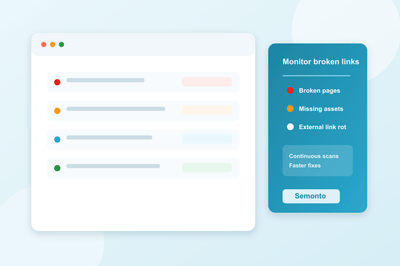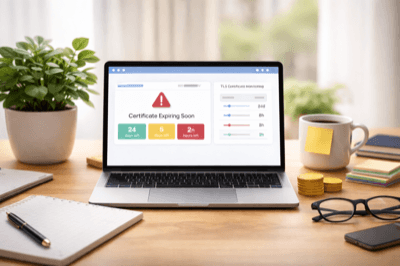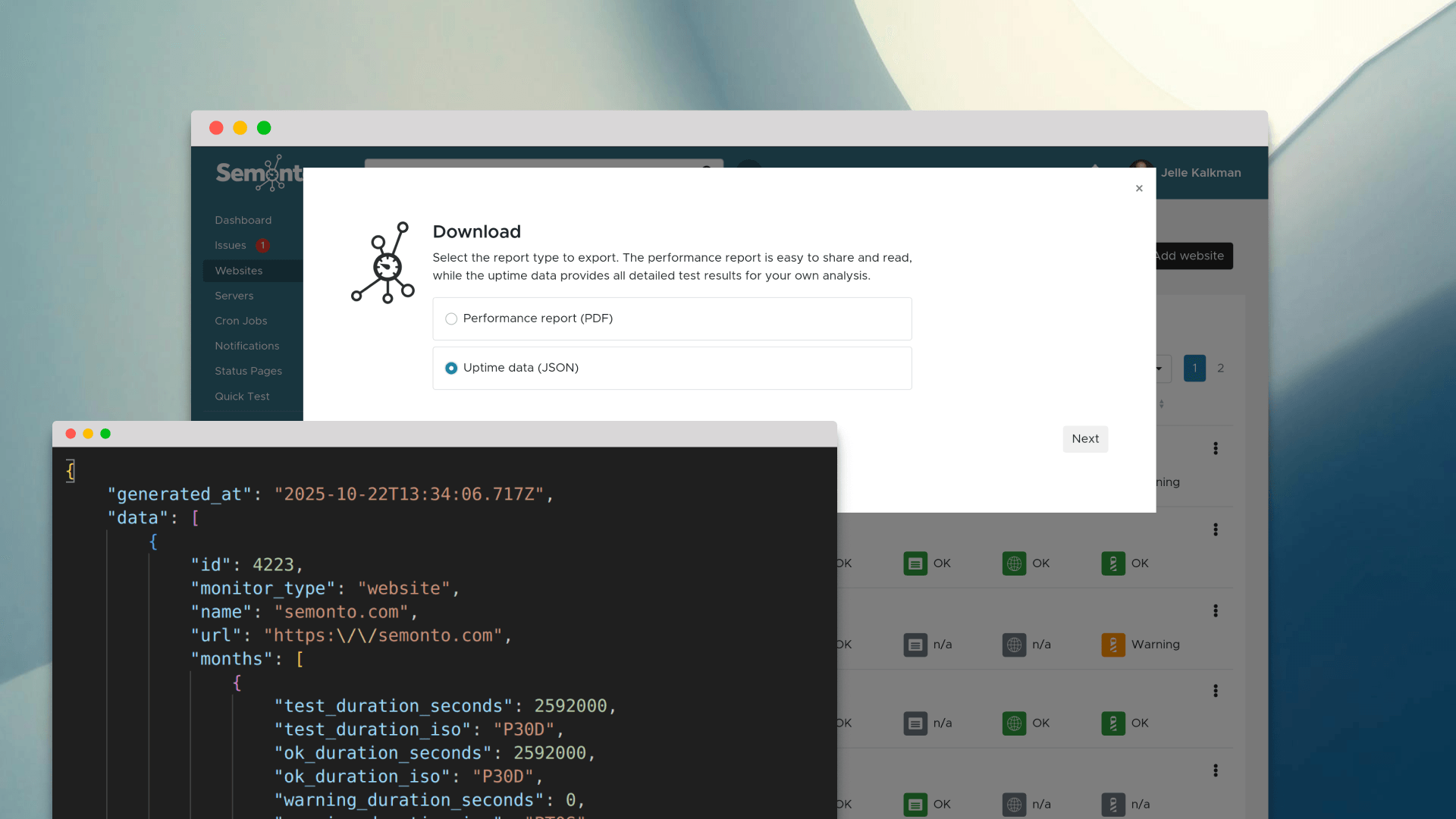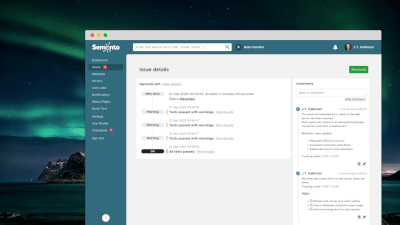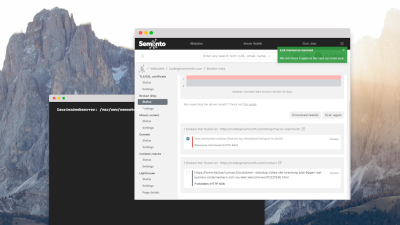Semonto offers multiple ways to test your websites, servers and scripts. We are having some small changes, so time for a short overview of everything and what will change. Let's dive in.
Website monitoring
Semonto offers an extended suite to monitor websites:
- Monitoring website uptime and reachability.
- Content checks to check if keywords are present.
- All links and images can be verified if they work, detecting broken links.
- The HTTPS certificate is verified, you will be notified if the certificate is about to expire.
- Domain status is monitored, alerting you when your domain is about to expire.
Server monitoring
Besides website monitoring, Semonto can be used to monitor servers. There is a port monitoring, and health endpoints can be monitored. A health endpoint provides insight into the technical health state of a server. Semonto will monitor this and alert you when your server is having issues.
Periodical task monitoring
A third type of monitoring offered by Semonto is our periodical task monitoring. This was called Pulsecheck monitoring and is now renamed to Cron job monitoring.
Cron job monitoring allows you to be alerted when periodical tasks are not executed or completed in time. Think about daily backups, scripts to sync data between systems, scripts aggregating data for business intelligence systems and more.
Cron job monitoring can also be used to monitor servers not directly accessible over the internet, such as database servers, NAS servers running on a local network, and more. It's like a dead man switch. If Semonto is not getting a pulse in time, you'll be notified.
So, If you don't find your Pulsechecks back in Semonto, just click on "cron job". We are planning more changes and feature improvements on our cron job monitoring, so stay tuned for those.
If you are not monitoring your website, or server, or periodical tasks yet. Check out Semonto; we offer a free trial. No credit card required. No strings attached. Just give it a go :)


